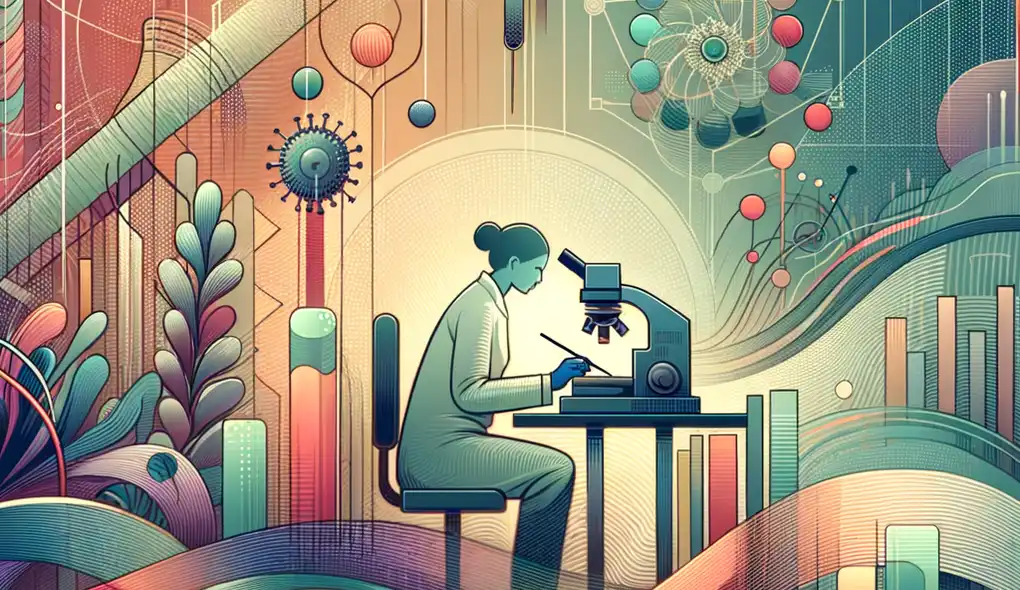How do you approach collaborative work with other researchers or scientists?
Microarray Analyst Interview Questions
Sample answer to the question
When collaborating with other researchers or scientists, I prioritize effective communication and shared goals. I make sure to actively listen and understand their perspectives and expertise. I am open to different ideas and suggestions, and I provide my input based on my own knowledge and experience. I believe in clear and concise communication to avoid misunderstandings and ensure everyone is on the same page. Collaboration also involves dividing tasks and responsibilities, so I am proactive in discussing and planning the workflow with my collaborators. Finally, I believe in regular progress updates and feedback to maintain transparency and accountability in the collaborative work.
A more solid answer
When working collaboratively with other researchers or scientists, I believe in building strong relationships based on effective communication, mutual respect, and shared goals. I take the time to actively listen and understand their perspectives and expertise, fostering an environment where everyone feels valued and heard. I contribute my own knowledge and experience, while remaining open to new ideas and suggestions. To ensure clear and concise communication, I use various tools like project management platforms and regular check-ins. I also proactively divide tasks and responsibilities, discussing and planning the workflow with my collaborators. This not only ensures efficiency but also strengthens our teamwork. Additionally, I believe in the importance of regular progress updates and feedback to maintain transparency, accountability, and continuous improvement in our collaborative work.
Why this is a more solid answer:
The solid answer expands on the basic answer by providing more specific details about techniques used for effective communication and collaboration. It also emphasizes the importance of mutual respect, shared goals, and continuous improvement.
An exceptional answer
To excel in collaborative work with other researchers or scientists, I follow a structured approach that combines effective communication, strategic planning, and adaptability. Firstly, I establish clear channels of communication and set expectations from the beginning, ensuring that all team members are aware of their roles and responsibilities. I actively listen to their input and perspective, valuing their expertise. To foster collaboration, I organize regular team meetings and encourage open discussions, where we can brainstorm ideas, exchange feedback, and address any challenges. Secondly, I believe in strategic planning by breaking down the project into manageable milestones with defined deadlines. This allows us to work efficiently and ensure timely progress. However, I also recognize the need for adaptability and flexibility when working with scientific research, as unexpected situations or new information may arise. In such cases, I am quick to adjust our plans, leveraging the diverse skills and knowledge of my team members to find the best solutions. Overall, my approach to collaborative work revolves around effective communication, strategic planning, and adaptability to maximize our collective impact.
Why this is an exceptional answer:
The exceptional answer provides a structured approach to collaborative work with specific techniques such as establishing clear channels of communication, organizing regular team meetings, and strategic planning. It also highlights the importance of adaptability and leveraging the diverse skills of team members.
How to prepare for this question
- Familiarize yourself with different communication tools and techniques, such as project management platforms and collaborative document editing.
- Reflect on past experiences of working in a team and identify specific examples where effective communication and collaboration played a vital role.
- Research and stay updated on the latest developments in the field of genetics and microarray technology, as this will enhance your ability to contribute to collaborative scientific work.
- Practice active listening skills and empathy, as these qualities are invaluable in building strong relationships and understanding the perspectives of your collaborators.
- Consider scenarios where unexpected challenges may arise during collaborative work and think about how you would approach them with flexibility and adaptability.
What interviewers are evaluating
- Communication
- Teamwork
- Flexibility
Related Interview Questions
More questions for Microarray Analyst interviews